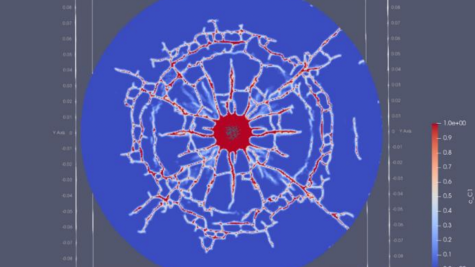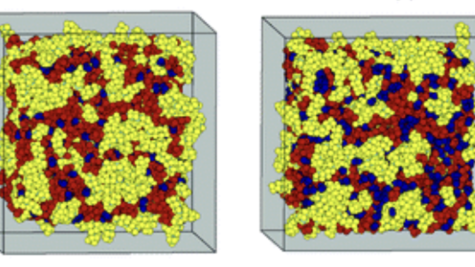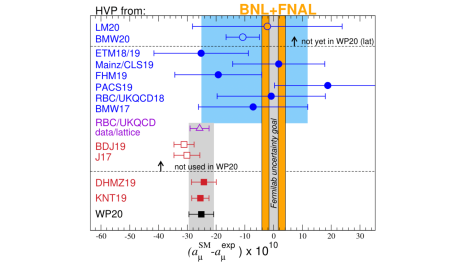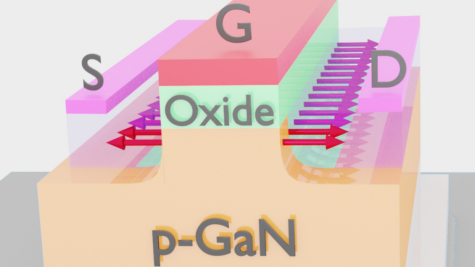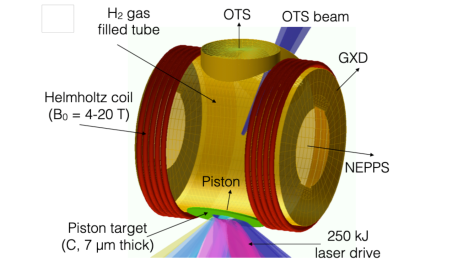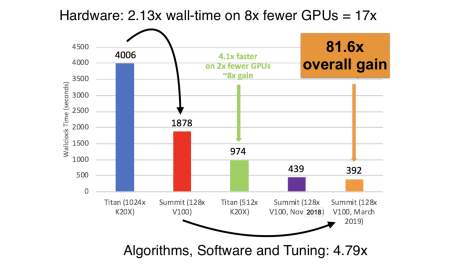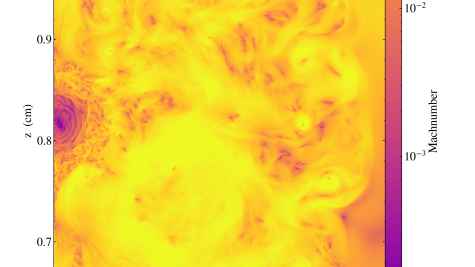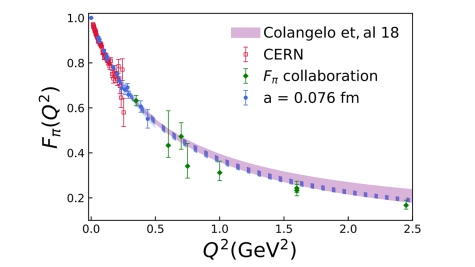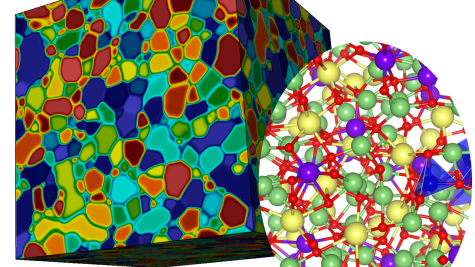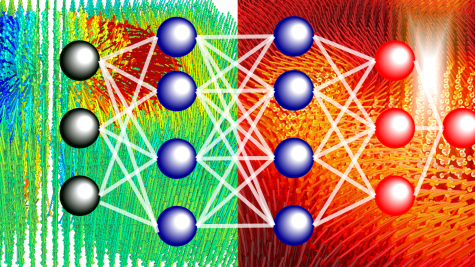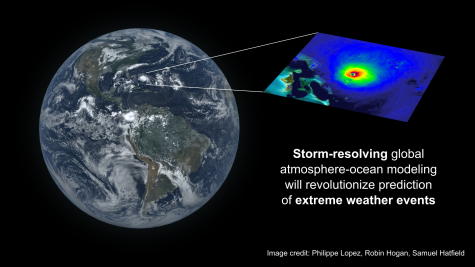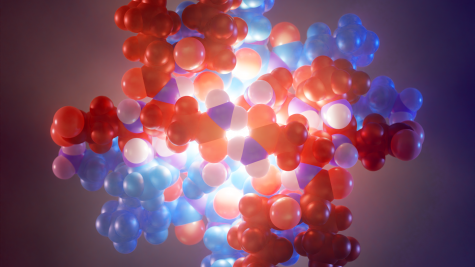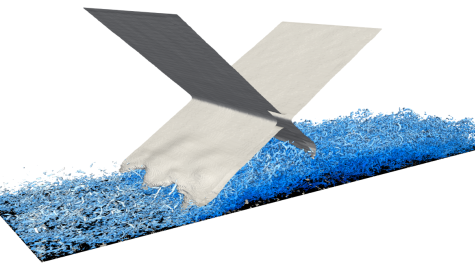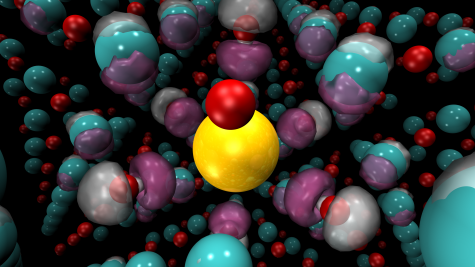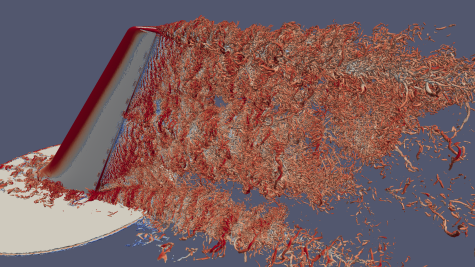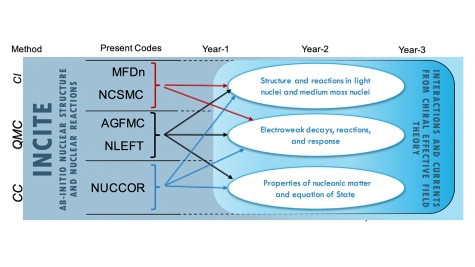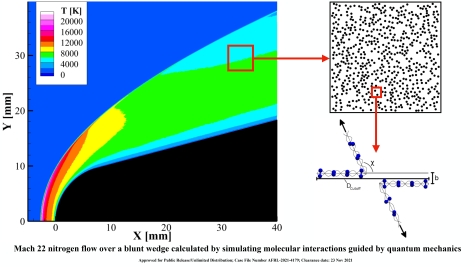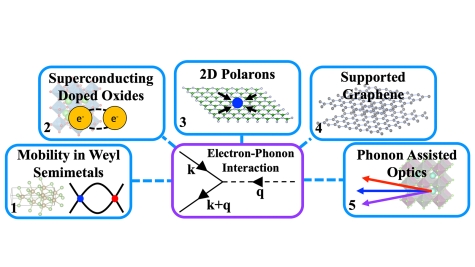ALCF projects cover many scientific disciplines, ranging from biology and physics to materials science and energy technologies. Filter ongoing and past projects by allocation program, scientific domain, and year.
A Multiscale Surrogate Model for Fracture Evolution Using DeepONet
The main objective of this research project is to develop a data-driven operator level surrogate model (DeepONet) to take the place of atomic scale modeling in a time-dependent multiscale system. As noted by DeepMind researcher Irina Higgins, “Once DeepONet is trained, it can be applied to new input functions, thus producing new results substantially faster than numerical solvers.”
Microscopic Insight into Transport Properties of Li-Battery Electrolytes
There is an increasing worldwide demand for high energy density batteries. This research is aimed at using large-scale, high performance computing to assist the discovery of novel battery electrolytes.
High Precision Hadronic Vacuum Polarization Contribution to the Muon Anomalous Magnetic Moment using Highly Improved Staggered Quarks
In this project, supercomputers at Oak Ridge Leadership Computing Facility, Argonne Leadership Computing Facility, and the National Energy Research Scientific Computing Center will be used to refine the theoretical prediction based on a technique known as lattice Quantum Chromodynamics (QCD).
Computational Design of Novel Semiconductors for Power and Energy
In this project, the team aims to develop and leverage cutting-edge ab initio computational methods to investigate the temperature-dependent optical and transport properties of compound semiconductors, perovskites, and plasmonic ceramics for uses in power devices, solar cells, and light-emitting diodes.
Energy Partition and Particle Acceleration in Laboratory Magnetized Shocks
Astrophysical collisionless shocks are among the most powerful particle accelerators in the Universe. The objectives of this research are to perform large-scale first-principles simulations of magnetized collisionless shocks to address important longstanding questions associated with energy partition and particle acceleration.
The Spectrum and Structure of Hadrons
Using Polaris at the Argonne Leadership Computing Facility, this team will compute the structure and spectrum of strongly-coupled hadronic states directly from the fundamental theory describing the interactions of quarks and gluons – the fundamental particles of nuclear matter. These calculations will provide essential theoretical support to the experimental program of the Thomas Jefferson National Accelerator Facility (Jefferson Lab) including the CLAS12 and GlueX experiments, and to the future Electron Ion Collider (EIC) at Brookhaven National Laboratory.
Approaching Exascale Models of Astrophysical Explosions
This INCITE project's x-ray burst simulations will provide insight into the rapid proton capture process nucleosynthesis, connect with observations, and probe the structure of the underlying neutron star.
Internal Structure of Strong Interaction Nambu-Goldstone Bosons
The results from this INCITE project will help answer fundamental questions regarding spontaneous chiral symmetry breaking in strong interactions, flavor symmetry violation, color confinement, and the origin of the mass of hadrons.
Predicting Ion Transport Kinetics at Complex Interfaces for Energy Storage
With this INCITE project, the researchers aim to integrate a validated multiscale modeling framework to study ion transport kinetics at complex interfaces in solid-state battery and hydrogen storage systems.
Ultrafast Control of Functional Materials
With this INCITE project, researchers from the University of Southern California are leveraging leadership-scale quantum dynamics simulations, machine learning, and x-ray free-electron laser (XFEL) experimental data to extend the frontier of ultrafast materials science.
Electron Kinetic Plasma Physics of Black Hole Accretion Flows
This INCITE Project takes a critical step toward understanding the behavior of black holes in the universe.
New Window into Tropical Meteorology with Global 1 km Atmosphere-Ocean Simulations
The outcome of this INCITE project will contribute to solving the top global threats in the next decade—extreme weather and climate action failure.
Automatic Building Energy Modeling (AutoBEM)
With this INCITE project, researchers will advance the Automatic Building Energy Modeling (AutoBEM) project to extend existing capabilities for creating and simulating a model of every building in America (bit.ly/ModelAmerica) to estimate energy, emissions, and cost reductions of energy-efficient building technologies.
Design of Peptides and Proteins on Classical and Quantum Computing Hardware
This INCITE project aims to reduce the computational and energetic costs of producing successful peptide macrocycle drugs or industrial enzymes using two approaches.
High-Speed Turbulence with Shocks Over Non-Adiabatic and Flexible Walls
This INCITE project is aimed at uncovering flow physics, producing validation data for lower-fidelity simulation approaches, and supporting the development of improved predictive theory.
Towards Predictive Calculations of Functional and Quantum Materials
This project aims to predict and better understand the quantum-mechanical properties of materials that display novel properties, including novel quantum phases.
Online Machine Learning for Large-Scale Turbulent Simulations
This INCITE project seeks to advance the current state of the art for online data analytics and machine learning (ML) applied to large-scale computational fluid dynamics simulations, as well as to develop more predictive lower-fidelity (and thus less computationally expensive) turbulence models for flows of interest to the aerospace, automotive, and renewable energy industries.
Ab-initio Nuclear Structure and Nuclear Reactions
Building on previous INCITE research, this project employs advanced ab initio quantum many-body techniques coupled with applied mathematics and computer science methods to study a wide range of nuclei and to accurately describe the atomic nucleus from first principles.
First Principles Simulation of Hypersonic Flight
With this INCITE project, these researchers will be able to conduct large-scale simulations of hypersonic flow fields based on the fundamental interactions of atoms and molecules in the gas.
Large-Scale Simulations of Light-Activated Matter
The project carries out simulations of electronic excited state properties of heterogeneous materials by coupling first-principles molecular dynamics and electronic structure methods beyond density functional theory.
